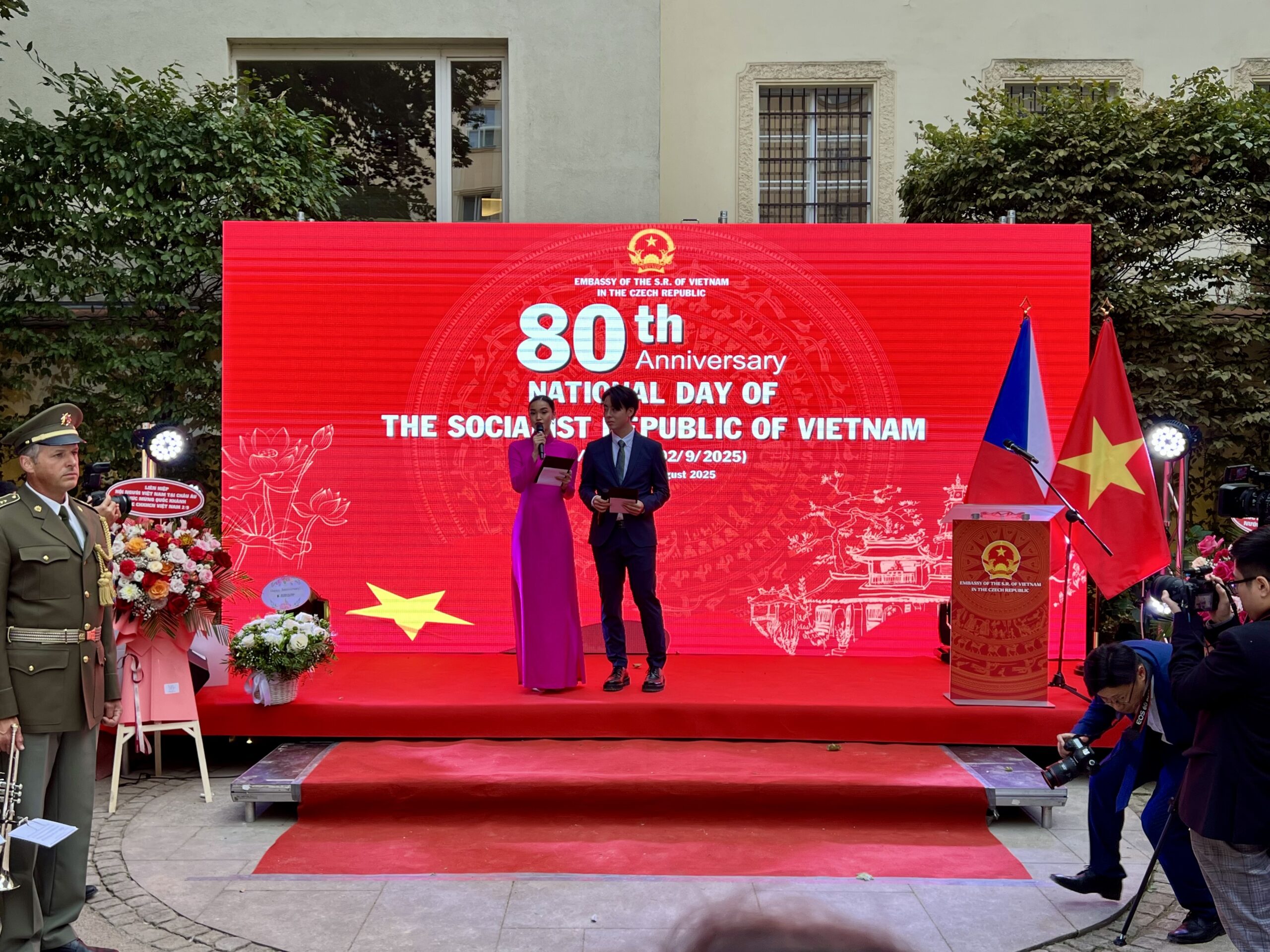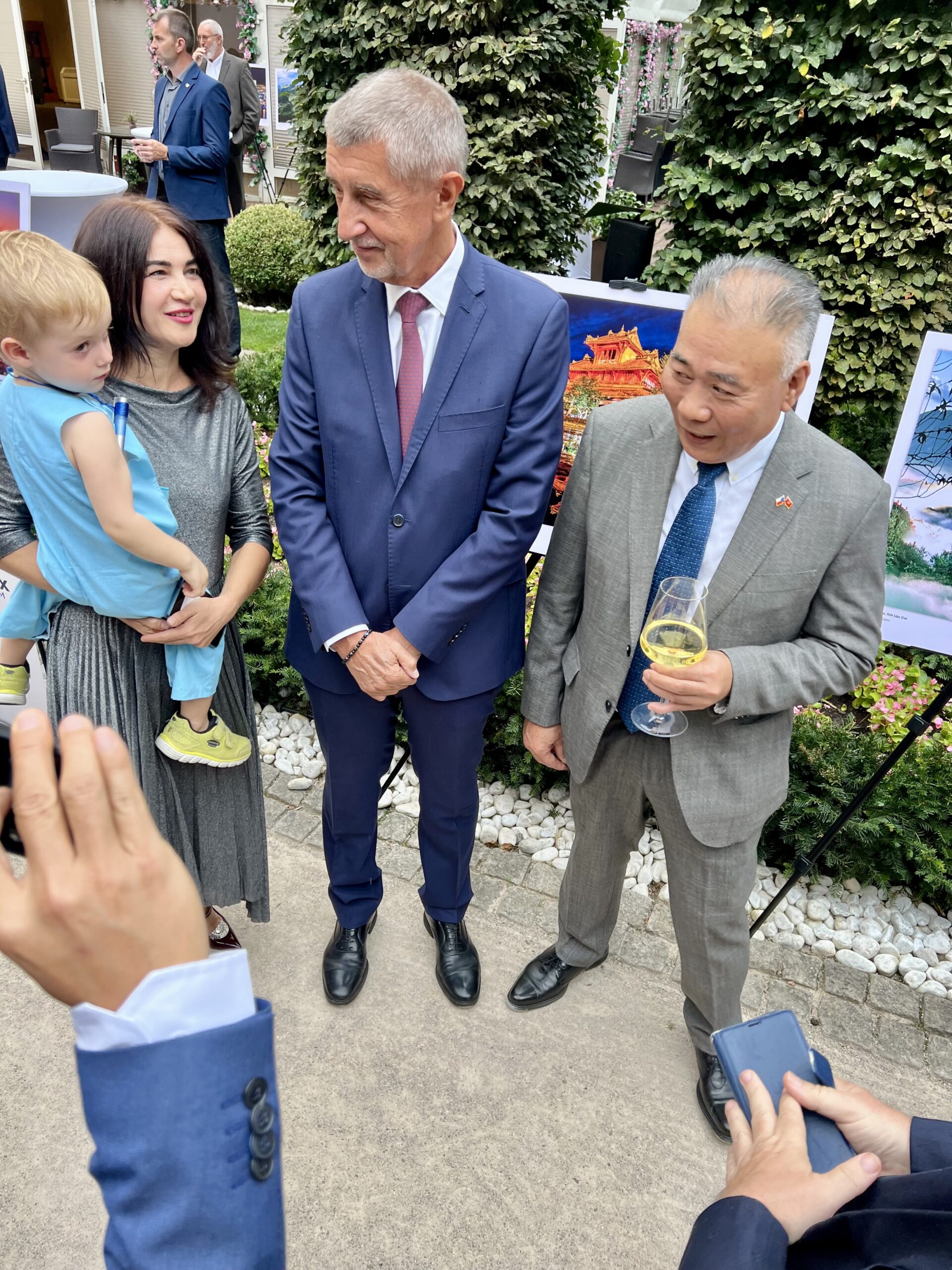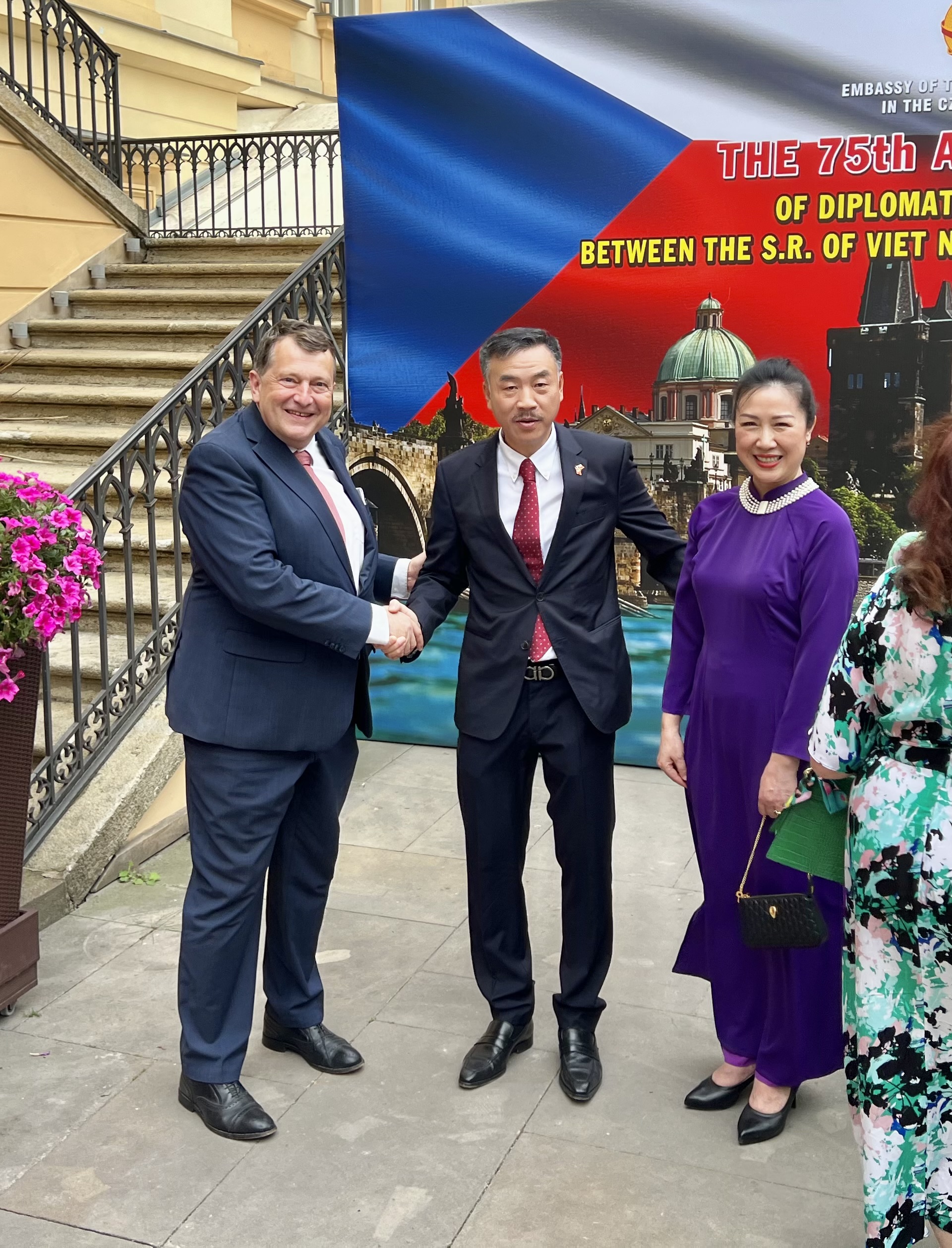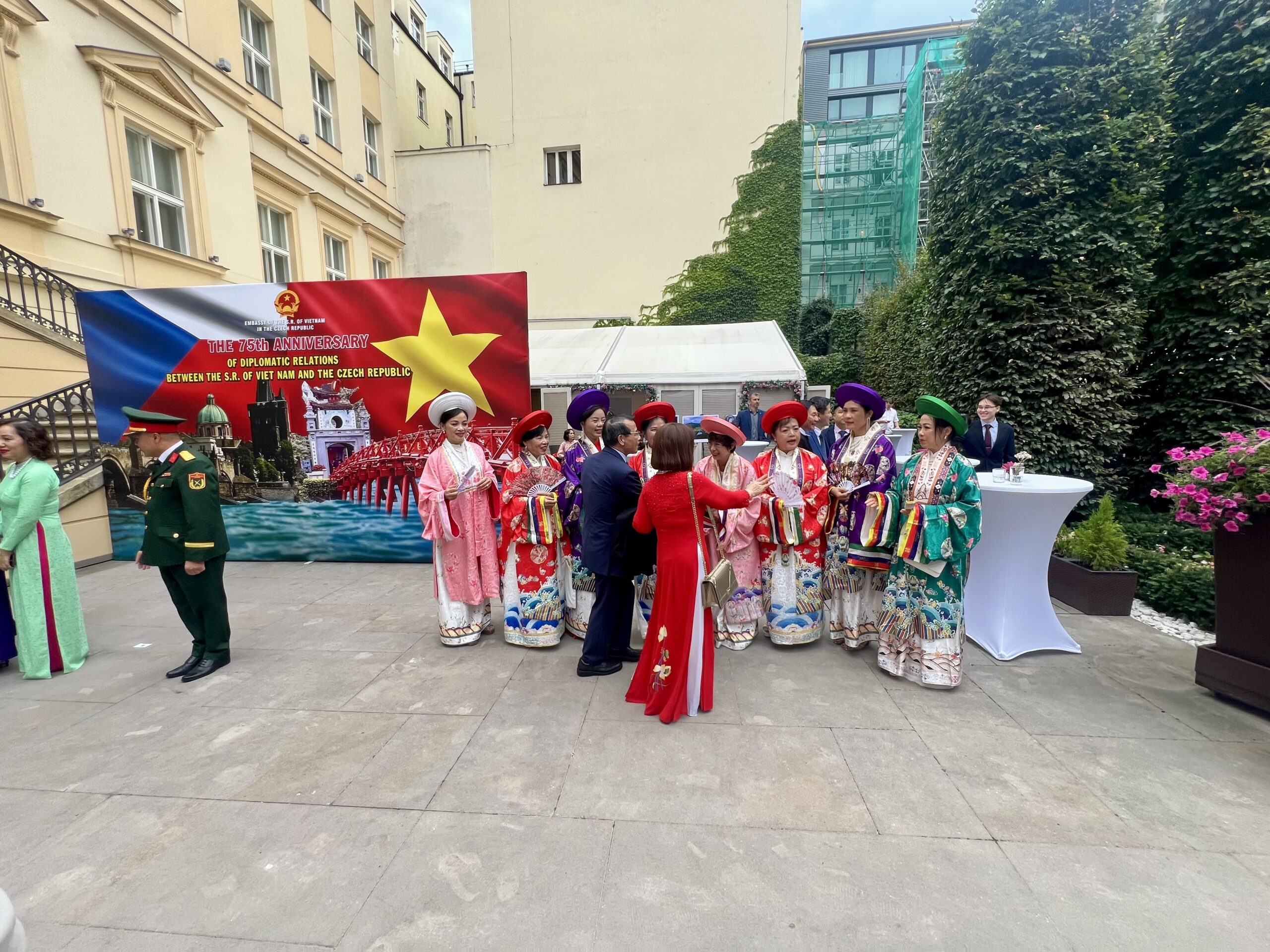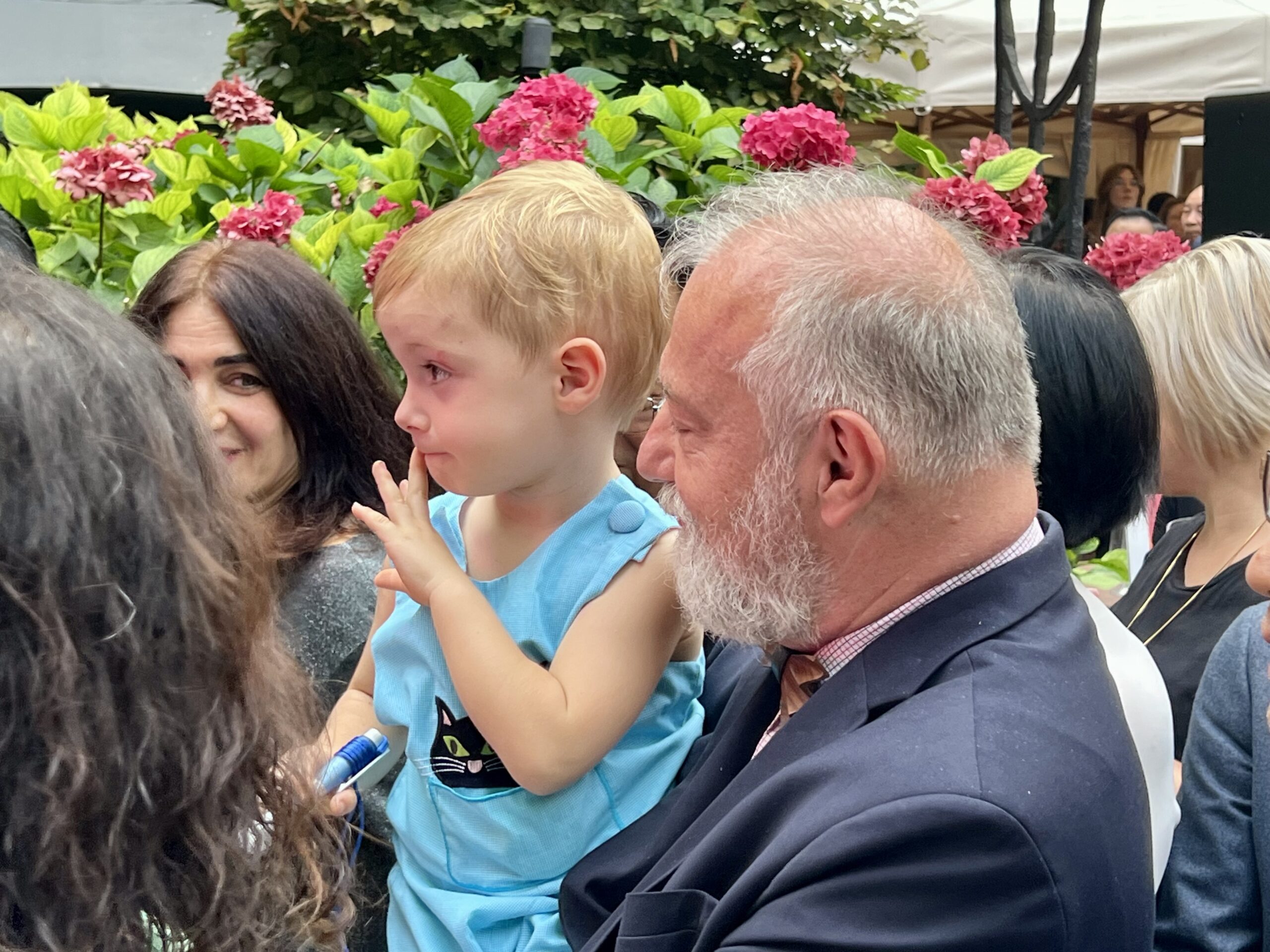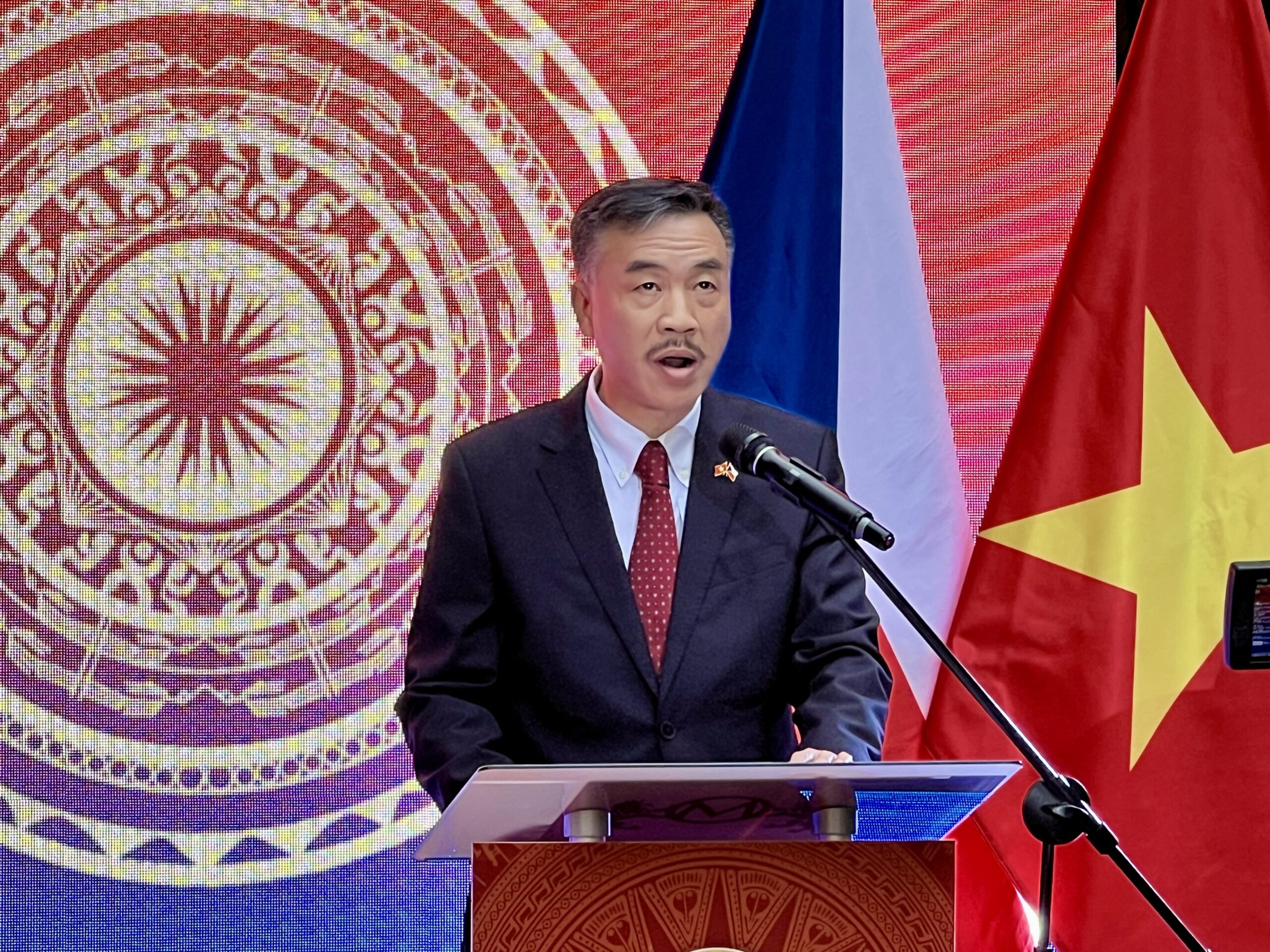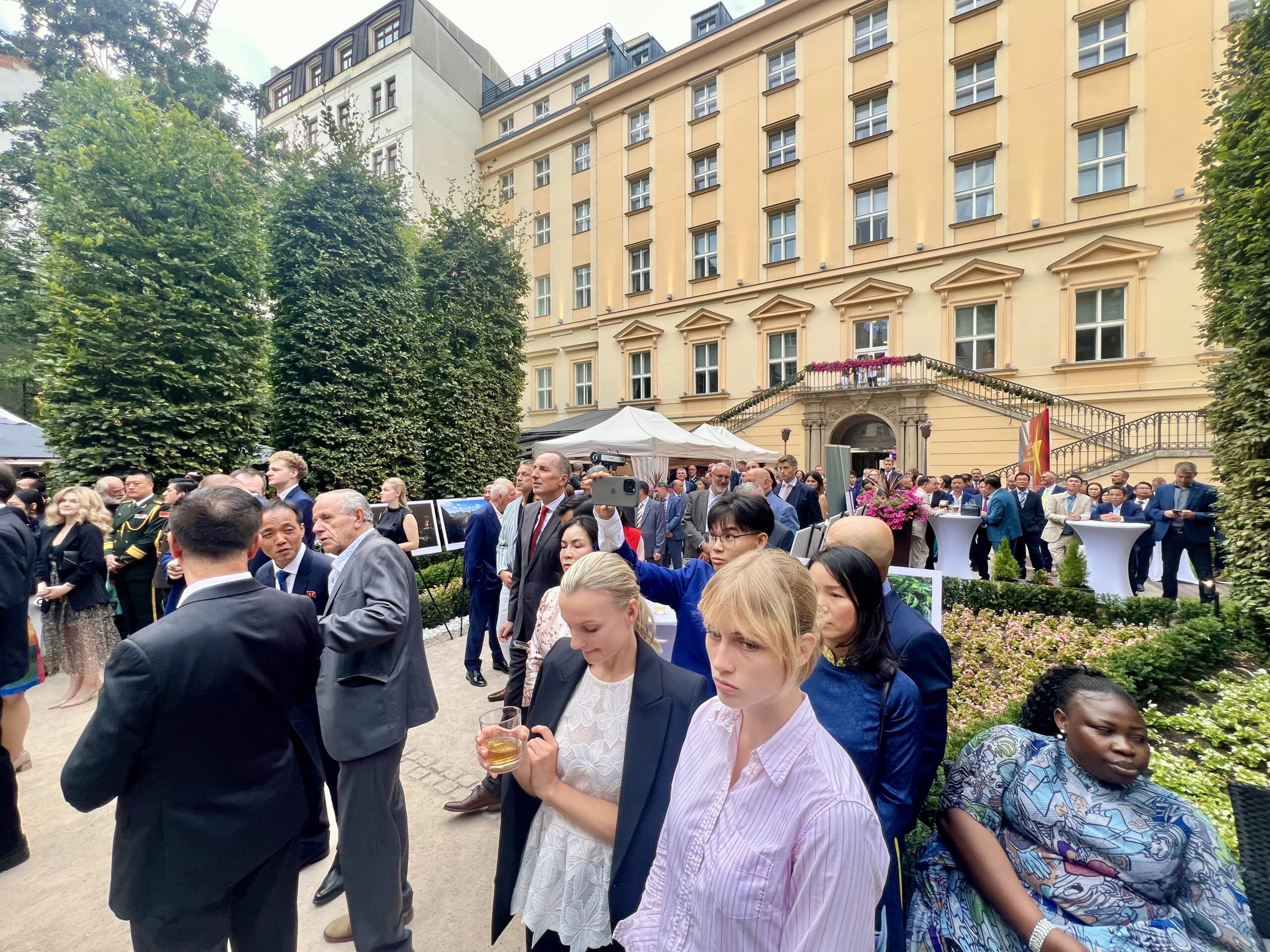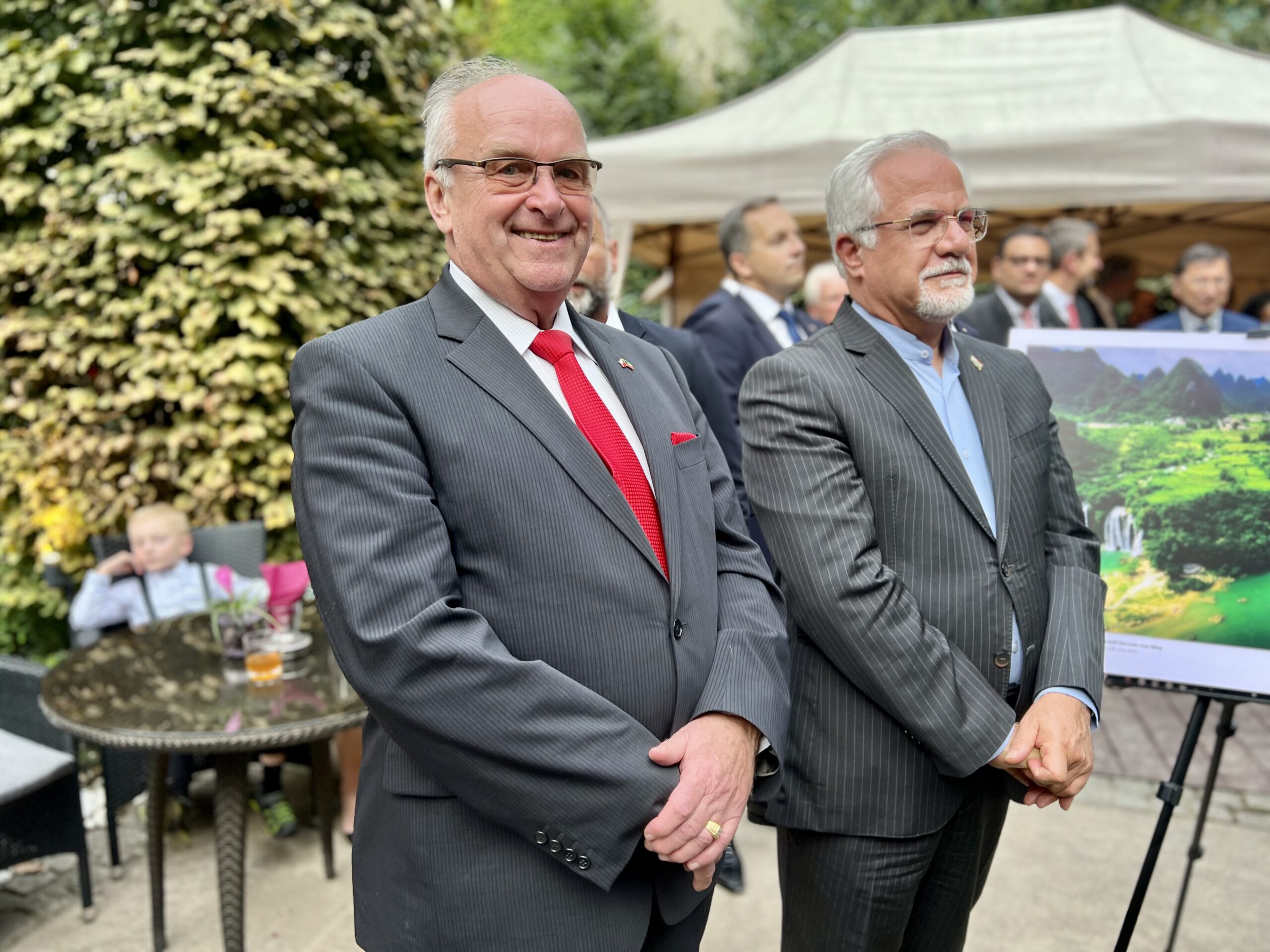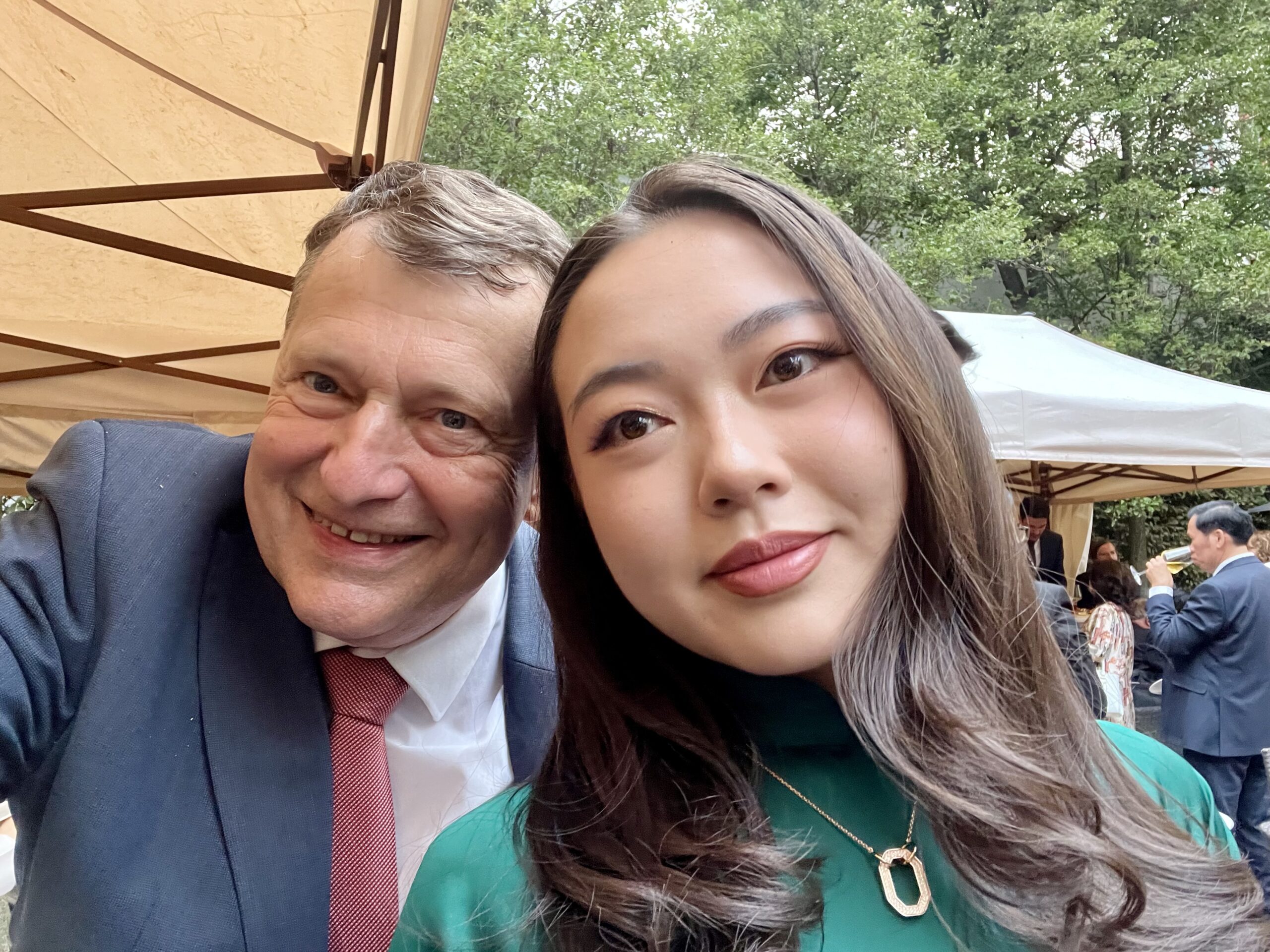- Hans Weber
- February 6, 2026
Vietnam’s 80th National Day Celebrated in Prague – Strengthening Ties, Honouring Community
On August 28, 2025, the Embassy of the Socialist Republic of Vietnam held a grand celebration to mark the 80th National Day of Vietnam. The event took place in the elegant garden of the Grand Mark Hotel in Prague and brought together a wide spectrum of guests: the Diplomatic Corps, Czech political figures, leaders from business and commerce, local Vietnamese residents, and friends of Vietnam in the Czech Republic. Among the notable attendees were former Prime Minister Andrej Babiš, current Foreign Minister Jan Lipavský, and the Czech Ambassador to Vietnam, Hynek Kmoníček. The host, Ambassador Duong Hoai Nam, delivered a keynote address alongside other dignitaries. The evening was marked by festivity, warm exchange, and the sense of two nations ever more deeply connected.
The Evening’s Highlights
Guests gathered in the lush outdoor setting, decorated with Vietnamese and Czech flags, combining formal ceremony with cultural performances. Speeches underscored respect for Vietnam’s journey—from war and colonial rule, to the founding of the modern state, through decades of political and economic transformations. Ambassador Duong Hoai Nam spoke of Vietnam’s rapid development, its increasing integration in global trade, and the importance of education, culture, and mutual respect in bilateral relations. Minister Lipavský and former Prime Minister Babiš both expressed their admiration for Vietnam’s accomplishments and their optimism about future cooperation.
Cultural programs followed: traditional Vietnamese music, dance, and food added joyous color to the evening. The Vietnamese community—born of generations in Prague and the Czech lands—was visible and proud, mingling with Czech citizens, diplomats, and businesspeople. Guests sampled Vietnamese cuisine, shared stories, and reinforced connections.
Historical and Contemporary Foundations of Czech–Vietnam Relations
Historical Roots
Czech–Vietnam relations date back many decades. Diplomatic ties were officially established on 2 February 1950, with Czechoslovakia recognizing the Democratic Republic of Vietnam. Since then, even with changes in political systems, both countries have maintained a consistently cordial relationship.
Education and labor exchanges during the socialist era brought many Vietnamese students and workers to Czechoslovakia. These initial waves laid the groundwork for a significant Vietnamese presence, many of whom stayed or established deeper roots in Czech society.
Strategic Partnership & Recent Developments
A major recent milestone is the elevation of bilateral relations to a strategic partnership in January 2025. This makes Vietnam the Czech Republic’s first strategic partner in Southeast Asia, and vice versa. The agreement covers multiple spheres: economy, culture, education, green transformation, people‑to‑people ties, among others.
Trade has also been growing, with Vietnam becoming one of the more dynamic Asian partners for Czech firms and the Czech Republic offering scholarships, training, and joint ventures. Cultural exchanges have expanded, and there is significant interest on both sides in promoting direct connections (for example, discussions of direct flights and cultural centers).
The Vietnamese Community in the Czech Republic as a Bridge
The Vietnamese community in Czechia is one of the largest non‑European immigrant groups. Though exact numbers vary depending on criteria, tens of thousands of people of Vietnamese origin live, work, and study in the country.
Over time, this community has become well integrated: younger generations are bilingual, active in education, business, and culture. Areas such as Prague’s Sapa market (also called “Little Hanoi”) are vivid examples of Vietnamese entrepreneurship, community life, and cultural presence.
The Vietnamese community serves multiple roles:
– Cultural ambassadors, preserving Vietnamese traditions, language, and festivals (such as National Day), and sharing them with Czech society.
– Economic contributors, through business (small and larger), gastronomy, trade, services.
– Social connectors, through families, educational institutions, and associations, building links both to Vietnam and across Czech society.
– Symbolic actors in diplomacy: their presence gives a human dimension to bilateral ties, reminding both governments of the importance of citizen‑level connections.
Why Czech–Vietnam Relations Are Particularly Good
Several factors explain why relations between Vietnam and the Czech Republic are especially friendly and productive:
- Deep historical ties: Because of the socialist period, links were established early and often through education, cooperation, and shared ideology. Those foundational ties have given way to trust and familiarity.
2. Mutual benefit in trade and investment: Czech technology, engineering, education export well to Vietnam; Vietnamese production and trade routes are of interest to Czech importers.
3. Strategic alignment: With the upgrade to a strategic partnership, there is political will on both sides to coordinate more closely in diplomacy, climate action, education, and culture.
4. Strong diaspora/community presence: The Vietnamese community in Czechia is multi‑generational and acts as a bridge in communication, culture, and commerce.
5. Cultural respect and soft power: Both countries value cultural diplomacy: performances, festivals, student exchanges, food, and language all contribute to mutual goodwill.
Significance of the 80th National Day Celebration
The 80th National Day is a significant milestone for Vietnam—it marks eight decades since Vietnam’s nationhood. Celebrating this in Prague, in the presence of high Czech political leaders and dignitaries, underscores how far the relationship has come.
Ambassador Duong Hoai Nam’s leadership since March 2024 has focused on strengthening economic, cultural, and people‑to‑people ties. The attendance of figures like Jan Lipavský and Andrej Babiš highlights that Vietnam is considered more than a distant partner—it’s a valued friend and strategic ally.
The presence of Hynek Kmoníček, Czech Ambassador to Vietnam, further symbolizes reciprocal respect and engagement. The joint involvement of Czech political figures, business representatives, and local Vietnamese shows diversified cooperation—political, economic, and social.
Challenges and Future Opportunities
While relations are good, challenges remain: bureaucratic hurdles in trade, ensuring equal rights for the Vietnamese community, and balancing strategic interests. Opportunities ahead include enhanced educational cooperation, direct flights, joint projects in green technologies, and leveraging the diaspora for tourism and cultural exchange.
Conclusion
The celebration of Vietnam’s 80th National Day in Prague was more than ceremonial—it was a statement of friendship, mutual respect, and shared vision. Under Ambassador Duong Hoai Nam, Czech‑Vietnamese relations are flourishing: grounded in history, reinforced by strategic partnership, and enriched by the vibrant Vietnamese community in Czechia.
As both nations look forward, the ties between Vietnam and the Czech Republic seem well‑poised to deepen further—through trade, culture, education, and most importantly, through the people who embody that partnership every day.
Recent posts
See AllPrague Forum Membership
Join us
Be part of building bridges and channels to engage all the international key voices and decision makers living in the Czech Republic.
Become a member